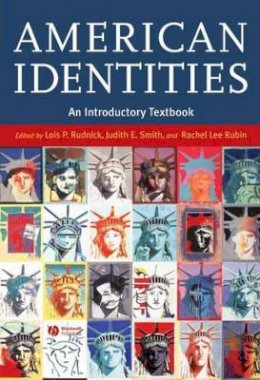
Stock image for illustration purposes only - book cover, edition or condition may vary.
American Identities
Lois P. Rudnick
€ 59.96
FREE Delivery in Ireland
Description for American Identities
Paperback. American Identities is a dazzling array of primary documents and critical essays culled from American history, literature, memoir, and popular culture that explore major currents and trends in American history from 1945 to the present. Editor(s): Rudnick, Lois; Smith, Judith; Rubin, Rachel. Num Pages: 384 pages, 28. BIC Classification: 1KBB; JFC; JHM. Category: (P) Professional & Vocational. Dimension: 246 x 172 x 21. Weight in Grams: 674.
American Identities is a dazzling array of primary documents and critical essays culled from American history, literature, memoir, and popular culture that explore major currents and trends in American history from 1945 to the present.
- Charts the rich multiplicity of American identities through the different lenses of race, class, and gender, and shaped by common historical social processes such as migration, families, work, and war.
- Includes editorial introductions for the volume and for each reading, and study questions for each selection.
- Enables students to engage in the history-making process while developing the skills crucial to interpreting rich and enduring cultural texts.
- Accompanied by ... Read more
Product Details
Format
Paperback
Publication date
2005
Publisher
John Wiley and Sons Ltd United Kingdom
Number of pages
384
Condition
New
Number of Pages
384
Place of Publication
Hoboken, United Kingdom
ISBN
9780631234326
SKU
V9780631234326
Shipping Time
Usually ships in 7 to 11 working days
Ref
99-50
About Lois P. Rudnick
Lois P. Rudnick is Professor of English and American Studies and Director of the American Studies Program at the University of Massachusetts Boston. Judith E. Smith is Professor of American Studies and Director, Graduate Program in American Studies at the University of Massachusetts Boston. Rachel Lee Rubin is Associate Professor of American Studies at the University ... Read more
Reviews for American Identities
“This unique collection has what students (and their teachers) will find absorbing, provocative, and useful in that perennial quest to locate ourselves in a world we may not have made but that we can understand and change.” Paul Lauter, Trinity College
